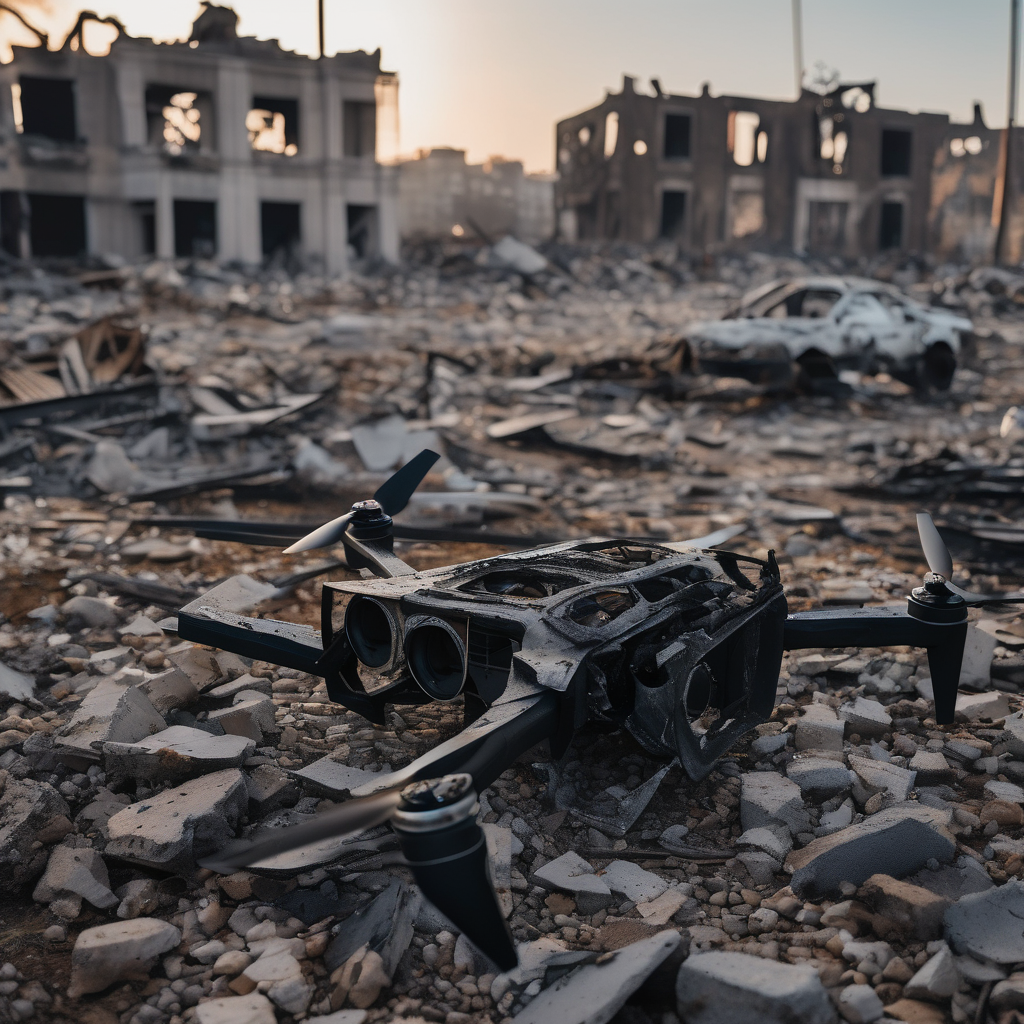In a brutal escalation of violence, Russian drones and missiles targeted the Ukrainian capital of Kyiv and other cities, resulting in the deaths of at least six individuals, including two children — a six-month-old baby and a 12-year-old girl. The relentless attacks, which spanned from Tuesday night into Wednesday morning, damaged crucial energy infrastructure as well as multiple high-rise residential buildings.
The assault commenced shortly after 1 a.m., with multiple explosions resonating across Kyiv and continuing to disrupt the city amid rush hour. Reports indicate that air defenses were actively engaged against the incoming threats, highlighting the deepening crisis. Ukrainian President Volodymyr Zelenskyy expressed his outrage on social media, stating, “Another night proving that Russia does not feel enough pressure for dragging out the war.” He confirmed that 17 individuals had sustained injuries during the bombings and lamented the tragic loss of life.
Amid these developments, fears have grown regarding a potential escalation in Russian military operations, particularly in light of a shift in U.S. support. Just a day before the attacks, a planned meeting between U.S. President Donald Trump and Russian President Vladimir Putin was canceled, further complicating ongoing diplomatic efforts to de-escalate the conflict.
Parallel to the Russian strikes, Ukraine has reportedly launched significant attacks against a major chemical facility in Bryansk, southwest of Russia, utilizing Storm Shadow missiles provided by British and French forces. Additionally, Ukrainian drones were active in Russia’s Mordovia region, marking a noteworthy extension of the conflict beyond Ukrainian borders.
Emergency services in Kyiv have been stretched thin, with rescue operations underway in various districts where missile and drone debris caused fires and structural damage. Notably, in the Desnianskyi district, responders saved 20 individuals trapped in a damaged ten-story building, while in another instance, 10 people were rescued from a blaze sparked by drone wreckage.
The assault not only resulted in civilian casualties but also struck vital energy infrastructure, leading to widespread power outages and leaving countless individuals without heating. The Ukrainian energy ministry reported that emergency power outages were implemented in most regions due to the extensive damage inflicted by the attacks.
As these hostile actions unfold, President Zelenskyy is set to engage in discussions with Swedish Prime Minister Ulf Kristersson, a meeting expected to bolster international support for Ukraine amidst increasing hostilities. A “coalition of the willing” meeting is also scheduled in London, aimed at reinforcing commitments to Ukraine’s defense amid ongoing challenges and wavering international support.
The recent airstrikes serve as a stark reminder of the tragic toll the conflict continues to impose on civilians and illustrate the complex and volatile nature of international diplomacy at this critical juncture. Nonetheless, there remains a strong global solidarity with Ukraine, as nations continue to rally in support of its sovereignty and territorial integrity.
